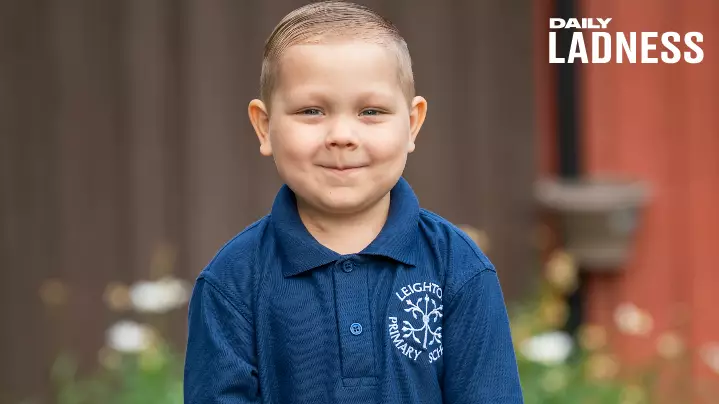
Josh Stockhill has been through far more than many people will experience in a lifetime - and he's only four. The little LAD has beaten leukaemia twice in his short life, against the odds, and has now been able to start his first day of school.
Josh's mum, Kirsty Knighton, said there were times she had thought she would never see her son in his school uniform, after he was first diagnosed with acute nymphoblastic leukemia at just eight months old.
Advert
Upon diagnosis, Josh's parents were told that he may not make it through the night but after nine months of 'rigorous' chemotherapy treatment, parents Kirsty, 36, and Craig Stockhill, 40, were dealt another blow - when they were told Josh had relapsed at just two years old.
But on Wednesday (16 September), Josh defied the odds to start his first day at Leighton Primary School in Peterborough, Cambridgeshire - a milestone which his parents say has left them feeling 'emotional'.
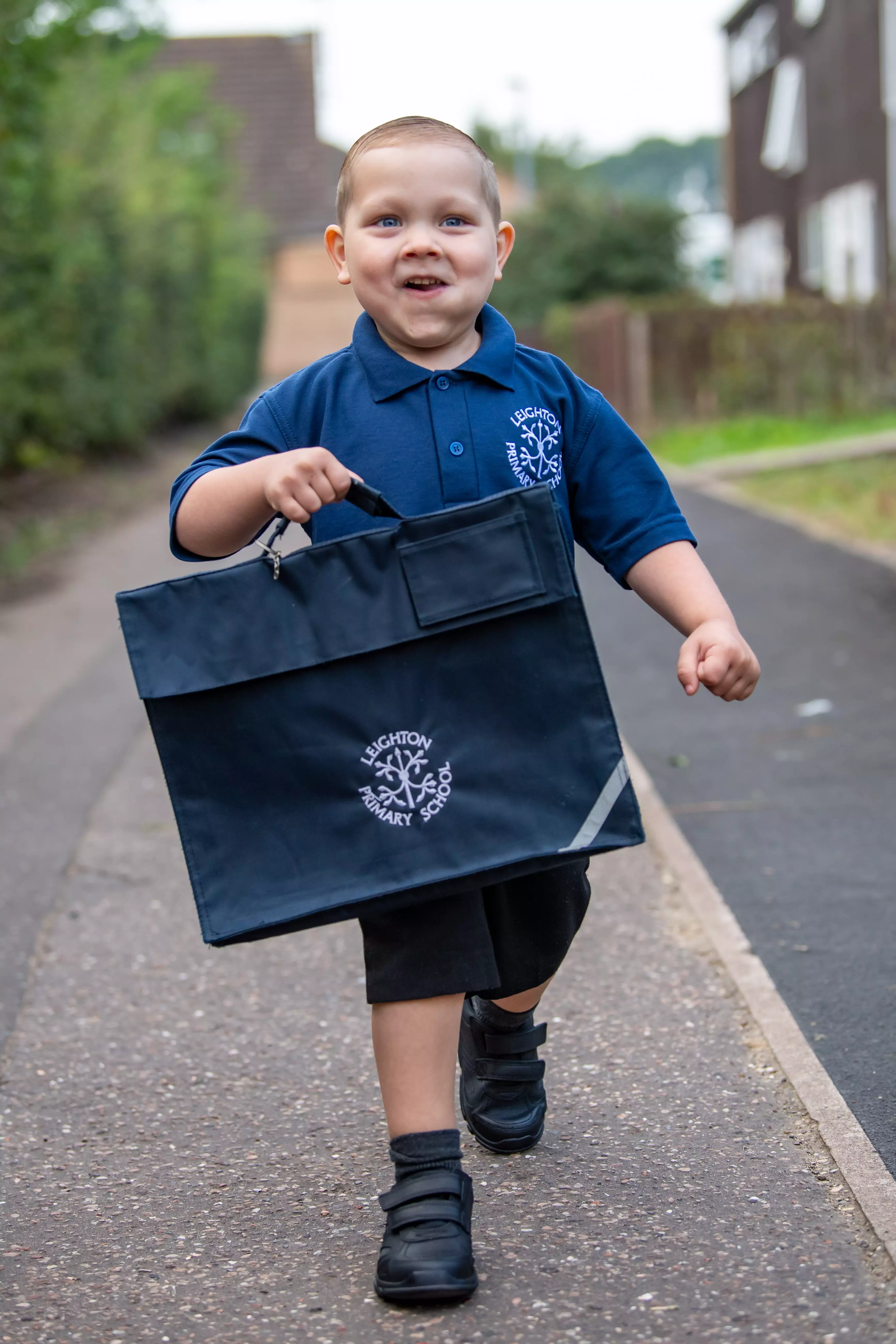
Ikea worker Kirsty said: "I got so emotional when he tried the uniform on. We have seen so many children who have not made it through our journey - we are so thankful Josh has this chance.
Advert
"He went in on Tuesday to see his new classroom and meet his teacher, and he's so excited to start properly."
Kirsty is now speaking out during Childhood Cancer Awareness Month, urging people to consider donating blood when they can, after a crucial cord blood donation saved Josh's life.
Josh, who has three older brothers and one younger brother, was first diagnosed before he was even old enough to start crawling.
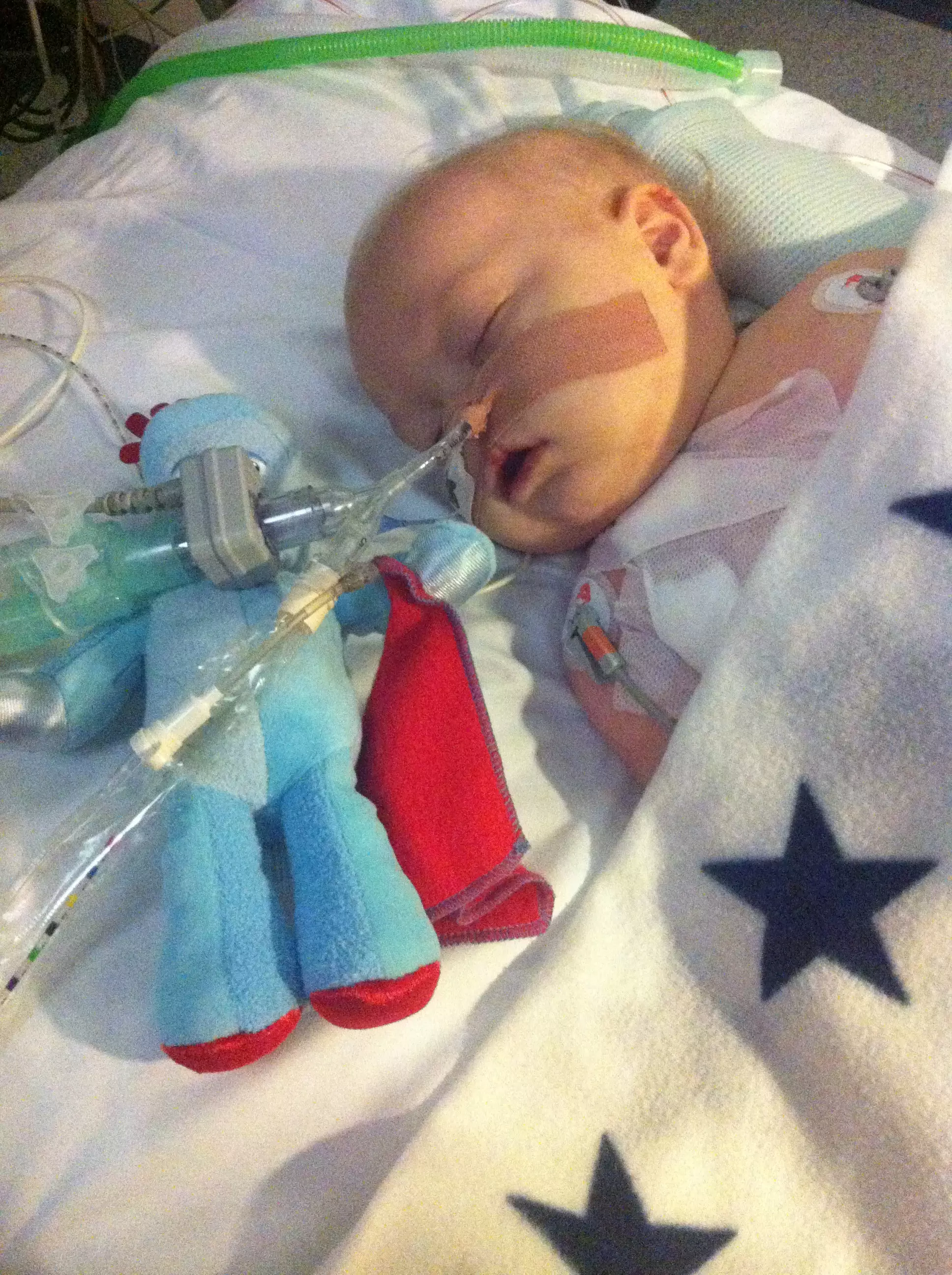
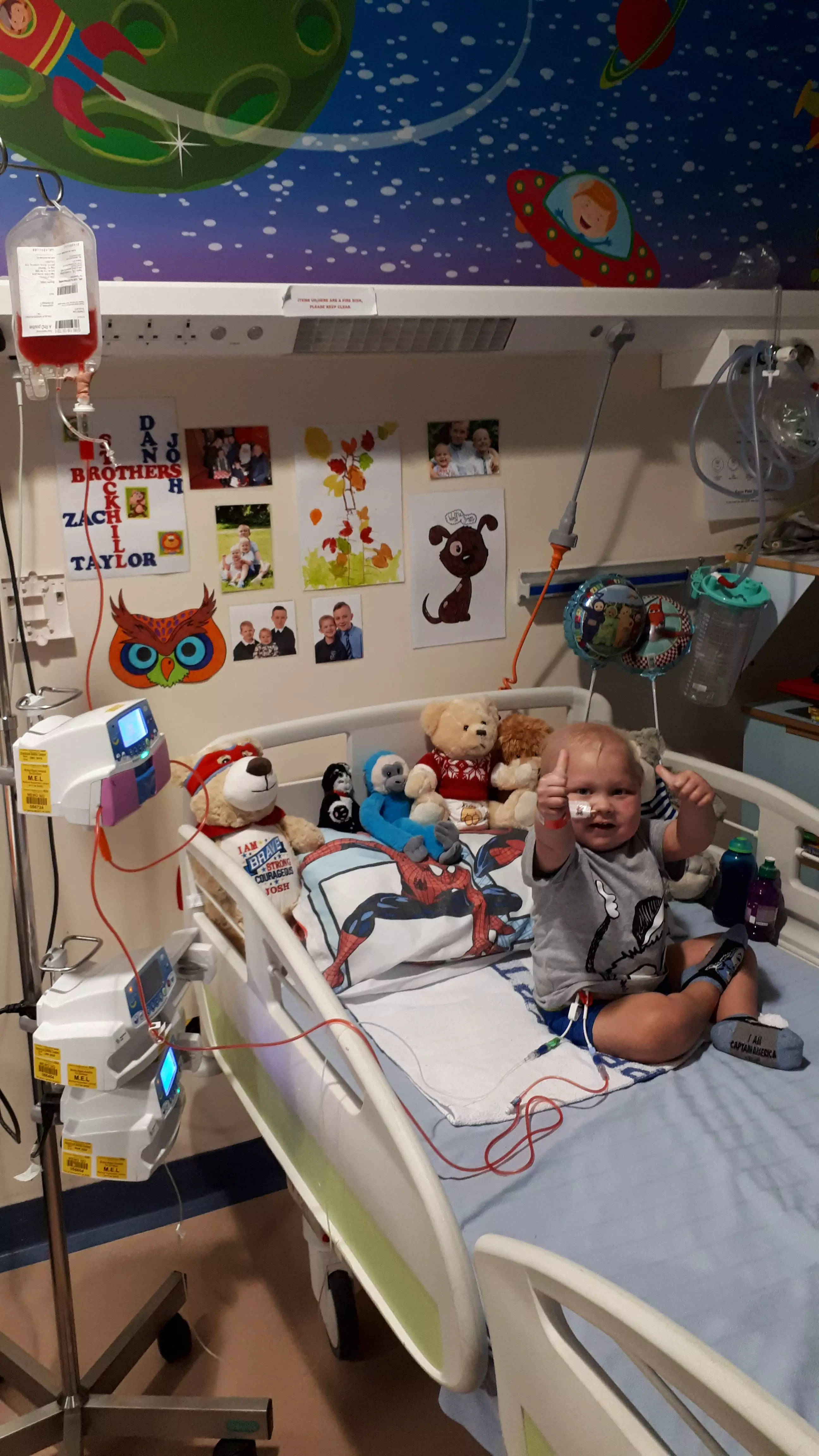
Talking about his initial diagnosis, Kirsty said: "We started noticing him coming out in bruising, which we thought was a bit strange as he wasn't even moving about at that point. We took him to the doctor, who sent us to Peterborough City Hospital for a blood test.
Advert
"They told us they suspected leukaemia, and they sent us to Addenbrookes Hospital at 8pm that same evening, where we were told he had infantile acute nymphoblastic leukemia. We were devastated. We were absolutely floored by it. We never, ever thought it would be that."
Josh began chemotherapy treatment - which was supposed to last an initial six months, followed by a further 18 months of less intensive 'maintenance' treatment at home.
But during just the first month of chemo, Josh developed sepsis, and ended up in intensive care.
Kirsty recalled: "We were told that there was a 50/50 chance he would make it through the night. We almost lost him at nine months old."
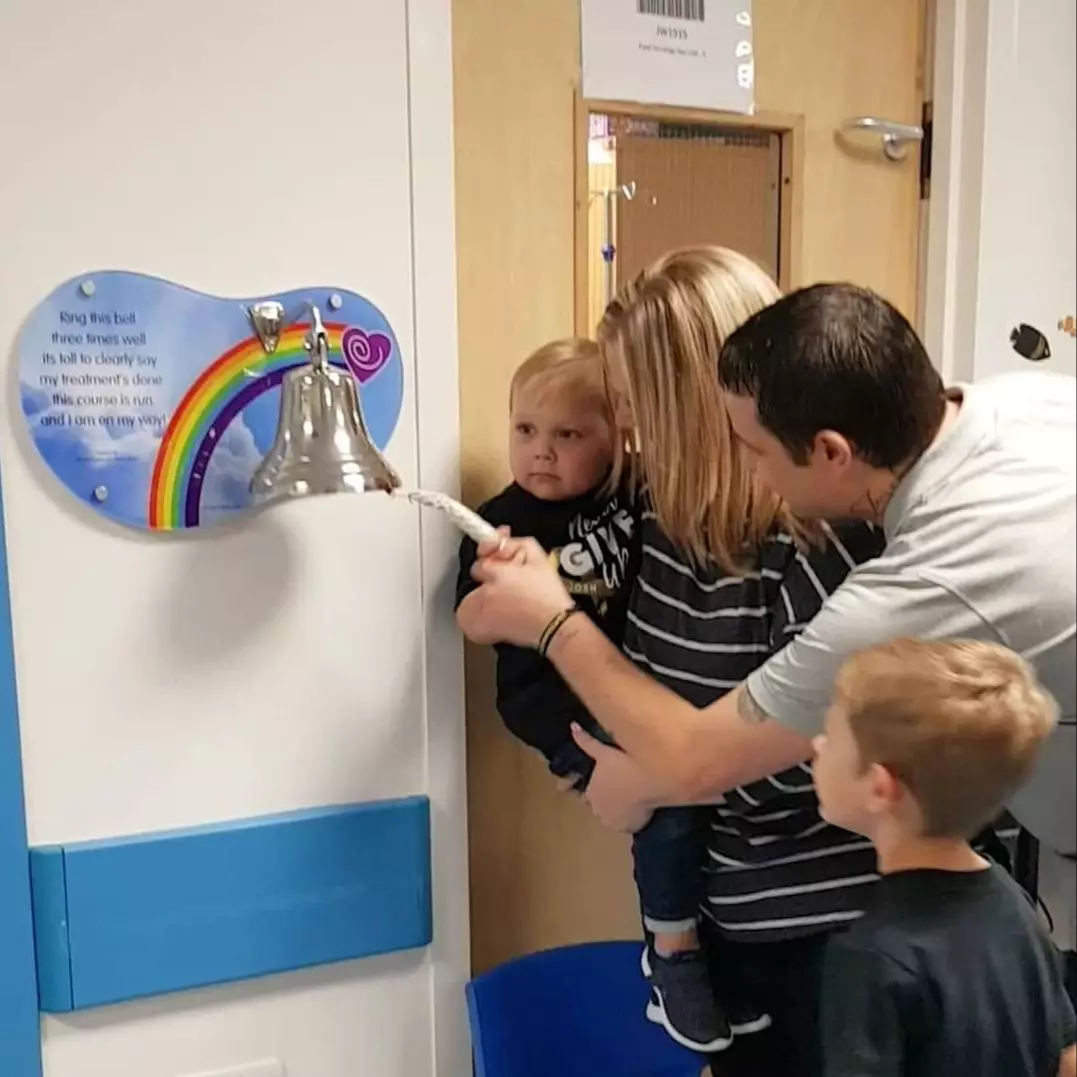
Then, in May 2018, Kirsty and Craig were given the devastating news that his leukaemia had returned - and that he needed a brain marrow transplant to survive.
Advert
Kirsty said: "He got a rash and an abscess on his face, and we kept asking whether it had returned."
Josh's brother Zach, seven, was tested as a bone marrow match - but it was found he was sadly not compatible.
Thankfully, Addenbrooke's Hospital in Cambridge found a ten out of ten match for a brain marrow donation for Josh, from a patient in Spain.
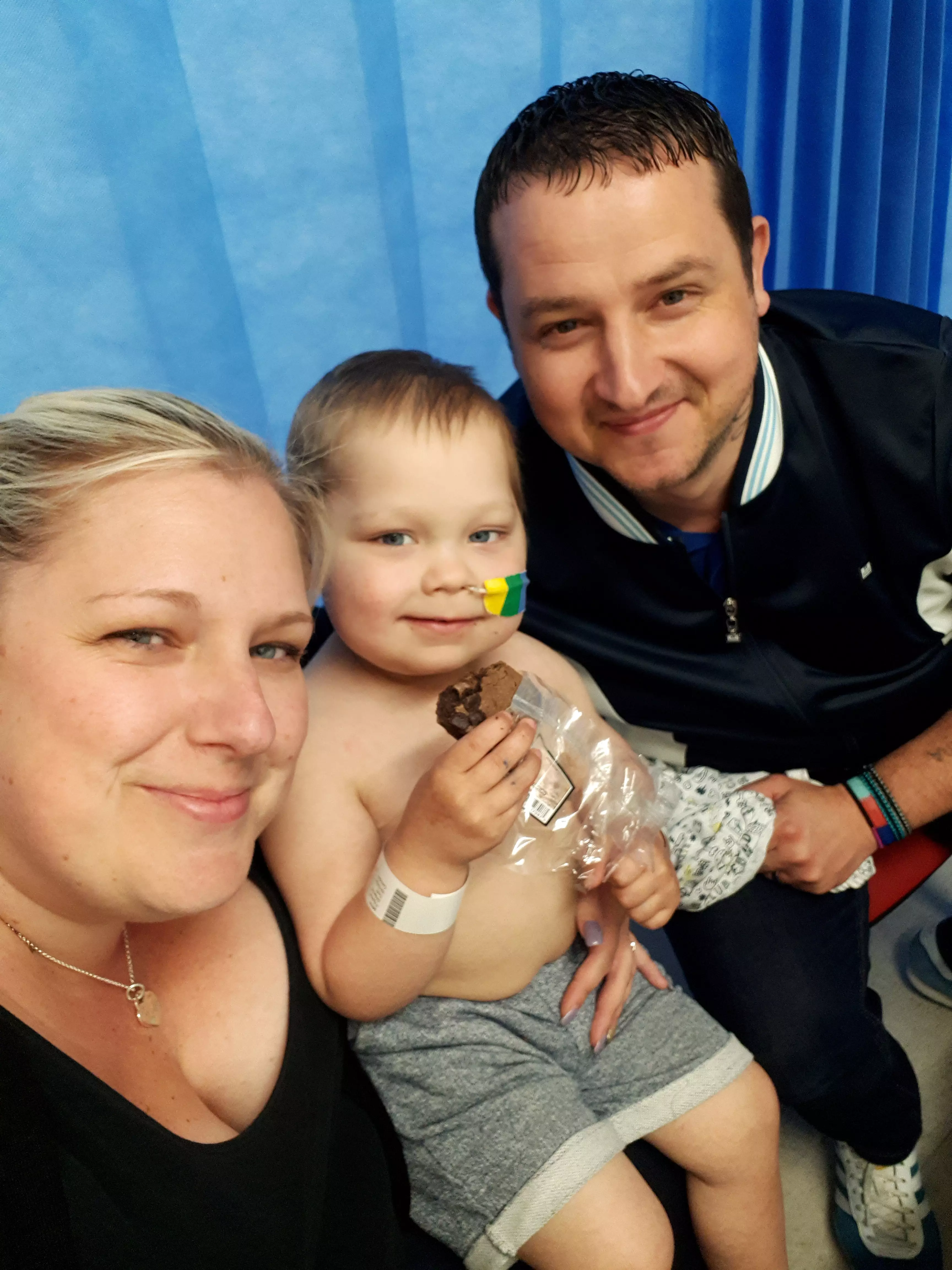
Thankfully, the young LAD has continued to recover well since his brain marrow transplant - with this November marking two years since the treatment.
Advert
Kirsty said: "We mark every milestone, and with each one he is getting better and better.
"He will be on medication for life, and under consultation for life, because of how severe his leukaemia was. We don't know what the future holds for him. But he's such a jolly child. He's so excited to start school."
And Kirsty has urged other people to consider donation - especially cord blood, which saved her son's life. Cord blood is the blood that remains in the placenta and in the attached umbilical cord after childbirth.
She said: "It was a cord blood donation from Spain that saved him. Some hospitals keep it, some don't, but it can be a real life saver. It is so, so important - if you ever get the chance to donate, please do."
To find out more about blood donation, click here.
Featured Image Credit: SWNSTopics: Daily Ladness, Community, Daily Ladness, Community, Daily Ladness, Community